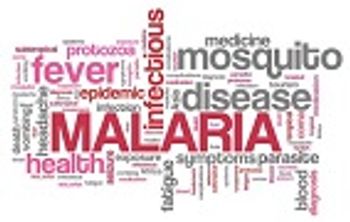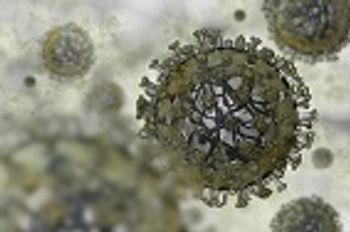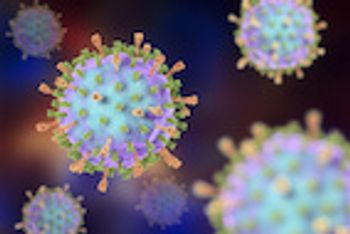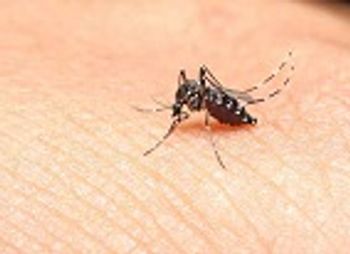
Following best practices for the “placement, maintenance, and removal” of catheters is just as important as appropriate testing in order to reduce catheter-associated urinary tract infections (CAUTIs).

Following best practices for the “placement, maintenance, and removal” of catheters is just as important as appropriate testing in order to reduce catheter-associated urinary tract infections (CAUTIs).

Two cases of meningococcal disease strain B have been confirmed at Oregon State University, urging officials to take preventive measures.

A recent outbreak of highly pathogenic avian influenza in commercial chickens and ducks in South Korea has health officials in the country on high alert and some poultry farmers taking quarantine measures.

IBM, Walmart, and Tsinghua University have partnered up to improve food safety practices in China.

A $29 million grant from the Bill & Melinda Gates Foundation will help focus efforts on eliminating malaria from Asia-Pacific and Southern Africa.

A recent study of employees at an industrial hog facility found that the livestock workers were more likely to carry Staphylococcus aureus bacteria in their noses, including antibiotic-resistant isolates.

A recent study assessed if laws pertaining to the screening and reporting of hepatitis B may increase identification in pregnant women and thus, allow for more infants who have been exposed to the virus to receive post-exposure prophylaxis.

On their quest to put an end to a threat that may change modern medicine as we know it, researchers discovered four chemicals that disrupt AcrA, an efflux pump protein, that contributes to antibiotic resistance in bacteria.

In mid-November, the CDC released the “Core Elements of Outpatient Antibiotic Stewardship.”

A new study sheds some light on the precise mechanisms involved in the development of HIV-1 associated nephropathy.

A study from University of Washington researchers uncovers how hospital laundry facilities may harbor dangerous Clostridium difficile spores, creating a potential community source for the bacterial pathogen.

Lake County General Health District confirmed that a contaminated cooling tower in Ohio was the cause of a 4-month-long outbreak of Legionnaires’ disease, which resulted in one death.

A study of 100 chickens collected from a marketplace in India finds multidrug-resistance in an emerging bacterial pathogen, and has researchers calling for improved food safety, monitoring, and surveillance.

A recent study shows that a person’s birth year may predict his/her chances of surviving an influenza A virus pandemic.

Most biotech and pharmaceutical companies focus their research efforts on cures for chronic diseases that plague the majority of the population because that’s where the money lies; however, is the rise in devastating infectious diseases such as Zika redirecting the lens of many companies?

A troubling new study has reported the presence of genes that are resistant to antibiotics in air pollution.

What started as four infections at the University of Missouri has now grown into an outbreak.

In a new approach to fighting bacterial pathogens, Johns Hopkins University researchers have developed a new antibiotic intended to fight tuberculosis and other drug-resistant infections.

Recent article discusses how advanced practice registered nurses can help combat pertussis.

The Alabama Department of Public Health has issued a health advisory in an attempt to increase awareness and prevention efforts in Madison County after seeing a dramatic increase in reported syphilis cases since last year.

A recent study has found that the rate of multidrug-resistant Pseudomonas aeruginosa infections is increasing in children in the United States.

The Florida Keys are primed for the release of genetically modified (GM) male Aedes aegypti mosquitoes that pass a self-limiting gene to their offspring.

The US Department of Health and Human Services has added seven new substances to its list of carcinogens deemed harmful to human health.

A new service in the United Kingdom, made possible by the National Health Service, reportedly offers a fast and accurate diagnosis of bacterial throat infections, promising a new way to reduce unnecessary antibiotic prescriptions.

Although infection with the Zika virus remains a "public health challenge," as it is still circulating in many parts of the world, the World Health Organization no longer deems it one of international concern.

The US Food and Drug Administration has announced that Sabra Dipping Co., LLC has recalled certain hummus products due to concerns about Listeria monocytogenes.

Researchers have found that molecules left on a individual's phone can reveal a good deal about his/her lifestyle.

Phase 2a trial data show that GEN-003 can durably reduce herpes simplex virus (HSV)-2 shedding and clinical disease for up to 12 months after dosing.

Researchers from Lebniz Institute for Zoo and Wildlife Research in Berlin, Germany conducted a study to test the hypothesis of host-restricted virus coevolution within gammaherpesviruses. The researchers produced the largest dataset of gammaherpesvirus sequences to date.

Researchers at Houston Methodist have discovered a protein that facilitates immunity against malaria and may be used to inform future vaccine development.